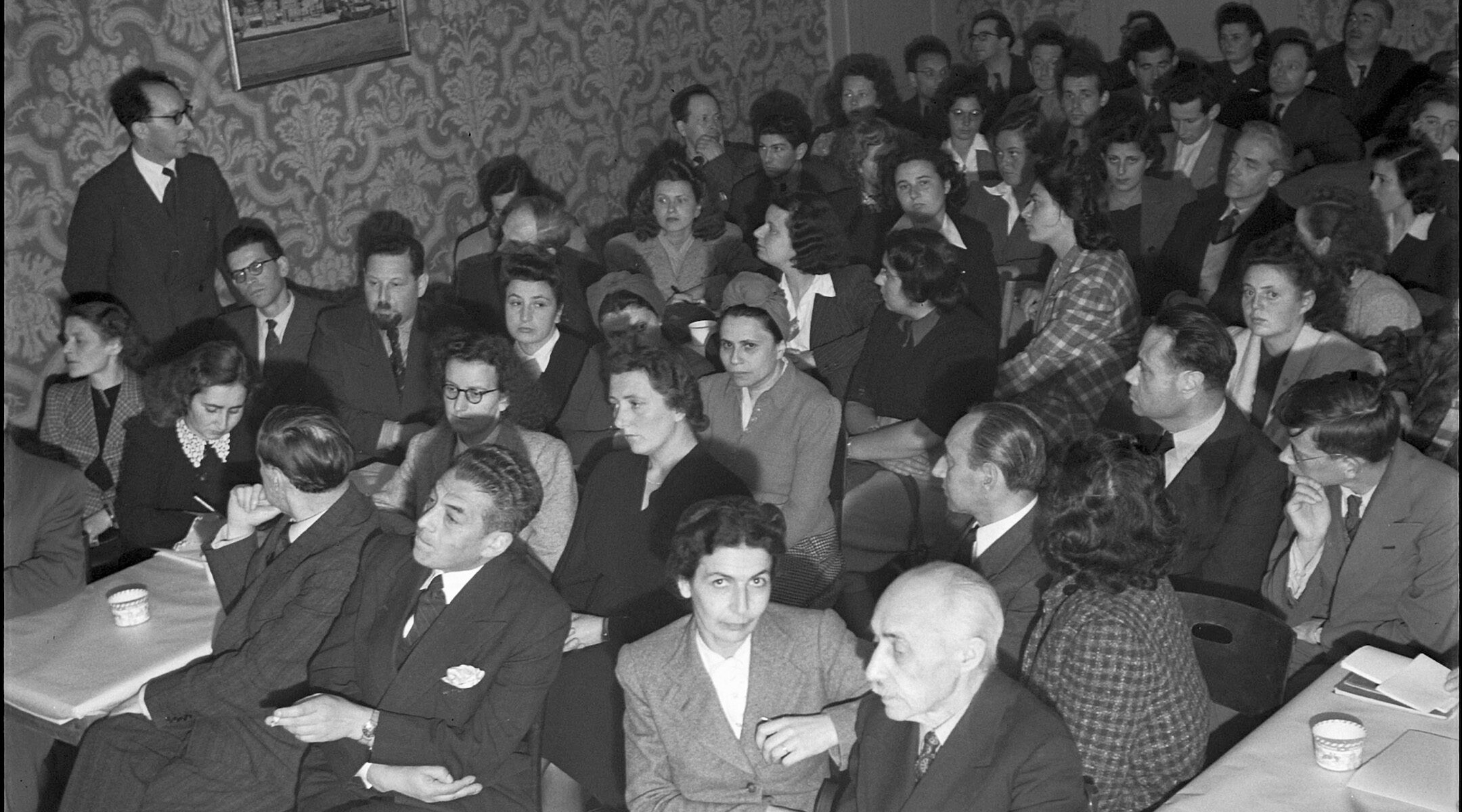A bitter controversy has erupted within the World Zionist Organization over the decision by the Zionist General Council (Actions Committee) last week to forego elections to the next World Zionist Congress in those countries where 90 percent of the factions represented in the Zionist Federations agreed on a slate of delegates beforehand.
The decision was immediately attacked by some of the smaller factions and the “young guard” elements of the larger parties. It was also assailed by many Zionist and non-Zionist delegates who attended the Jewish Agency’s General Assembly here last week and by large segments of the Israeli press.
Yosef Almogi, chairman of the WZO and the Jewish Agency Executives was clearly unhappy with the decision. But he sought to mollify the critics yesterday by assuring them that in most countries elections would be held. Addressing a joint session of the Israeli and overseas members of the WZO Executive, Almogi said the decision was made for technical reasons.
He said it would take up to two years to organize elections in every country which would mean postponing the next Congress scheduled to open here in January or February, 1977, and that, considering the serious problems facing the Zionist movement and Israel, it was better to dispense with elections in some places than to defer the next Congress.
Almogi failed to mention that in the U.S., where according to the 1971 membership poll, two-thirds of all registered diaspora Zionists reside, it has already been decided irrevocably, not to hold elections this year. The American Zionist leadership made the decision, it was learned, from reliable sources, because they did not want to clash with the Presidential elections taking place this fall and because the cost of mailing ballots would come to an estimated $750,000.
Almogi said that the 90 percent agreement necessary to dispense with elections was not likely to be attained in most countries “and the result which we predict is that in the majority of countries, elections will be held.” But even if elections are held in all countries except the U.S., the elected delegates would represent only one-third of the registered Zionists abroad.
CHARGE PROPOSAL WAS RAMMED THROUGH
The 123-member Zionist General Council meeting under the chairmanship of Yitzhak Navon, reached its controversial decision on the basis of a majority vote. The Labor Zionists, supported by the Religious Zionists and the World Confederation of General Zionists, reportedly “rammed” the proposal through over the vociferous opposition of the “young guards.” Uri Gordon, a leader of the Labor Zionist “young guard” threatened to bolt from the World Zionist Congress and hold a separate “democratic” Congress.
The World Union of Zionists and the Independent Liberals abstained. The angriest opposition came from the world movement of Herut-Hatzohar whose chairman, Dr. Raphael Kotlowitz, demanded that the issue be brought before the WZO’s Court of Honor for a final decision. Kotlowitz cabled Navon to convene the General Council presidium so that Herut could formally initiate an appeal to the Court. Herut is convinced that the Council’s decision is illegal under the WZO constitution.
Yosef Klarman, the Herut representative in the General Council and head of the WZO’s youth aliya department, said at yesterday’s meeting that the decision “dwarfs” the Zionist Congress. Klarman disputed Almogi’s contention that it would take two years to organize elections in all countries. He claimed that only three months were needed. But WZO sources involved in organization activities said Klarman’s time-table was unrealistic.
Almogi expressed the hope that the next Congress would be one of “freshening and renewal” for the WZO and that all partisan political issues would be settled before the opening so that the Congress could concentrate on pressing issues of substance.
JTA has documented Jewish history in real-time for over a century. Keep our journalism strong by joining us in supporting independent, award-winning reporting.
The Archive of the Jewish Telegraphic Agency includes articles published from 1923 to 2008. Archive stories reflect the journalistic standards and practices of the time they were published.




